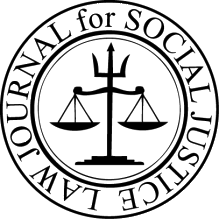Felix Raimondo, a second-year law student at Arizona State University’s Sandra Day O’Connor College of Law, needed the help of the Phoenix small claims court to resolve a dispute with his former landlord. But the constant challenges and lack of assistance from court staff made the effort extremely difficult and made Raimondo aware of the glaring obstacles that individuals may face when seeking redress for financial damages. Raimondo argues that law students and lawyers should advocate for better access and assistance in the legal system for self-represented litigants seeking to resolve legal disputes.
Blog Posts
Let’s talk about sex: Filling the gaps to provide comprehensive sex education in America
By Nyah Fyfe. A majority of American parents support teaching sex education in schools. Even so, relatively few states have comprehensive sex ed in their public school curricula. Misinformed fears of “grooming” and negative views about LGBTQ individuals are partly to blame for the growing opposition to science-based sex ed. Experts, on the other hand, emphasize what studies also show: Using factually accurate, neutral language to teach children about anatomy and sexuality is the most effective way to protect our youth. Well-informed students are more likely to have healthy, consensual relationships, face lower STI and pregnancy risks, and are better at identifying potential predators.
Historic injustice: Federal regulation of Native American maternal health
By Keely Driscoll. The legal relationship between Tribes and the federal government rests on a long history of constitutional, treaty, and case law. A foundational principal of Federal Indian Law is the federal trust responsibility, under which the United States is expected to protect Tribal interests. As it stands, however, that trust has been repeatedly violated through the federal government’s use of eugenics and forced sterilization of women, particularly incarcerated women, immigrants, and women of color. Moving forward, greater oversight and reporting efforts are needed to ensure women are not forced to undergo irreversible procedures.
Book banning—it’s bad!
By Sophie Staires. Book banning is on the rise in the United States and, despite federal pushback, First Amendment arguments don’t seem to be helping. In this blog post, law student and Cherokee citizen Sophie Staires offers her firsthand account of Native American erasure in the American public school system—and a warning of what can result from hiding information and forcing people to forget their culture, their history, and their identity.
Our most vulnerable on the streets: The crisis of unhoused seniors
By Kyle Bycroft. Arizona has seen an unprecedented rise in its unhoused population in the last several years, and senior citizens bear some of the greatest hardships of life on the street. Unhoused seniors often face unique and long-lasting health impacts due to factors like exposure to illness, addiction, unchecked mental health problems, and extreme temperatures—high in the summer and low in the winter. Now, states are using creative means to combat the crisis by diverting federal Medicaid funds to provide housing for their most vulnerable residents. But doctors and housing experts say temporary solutions are not enough to create lasting change.
